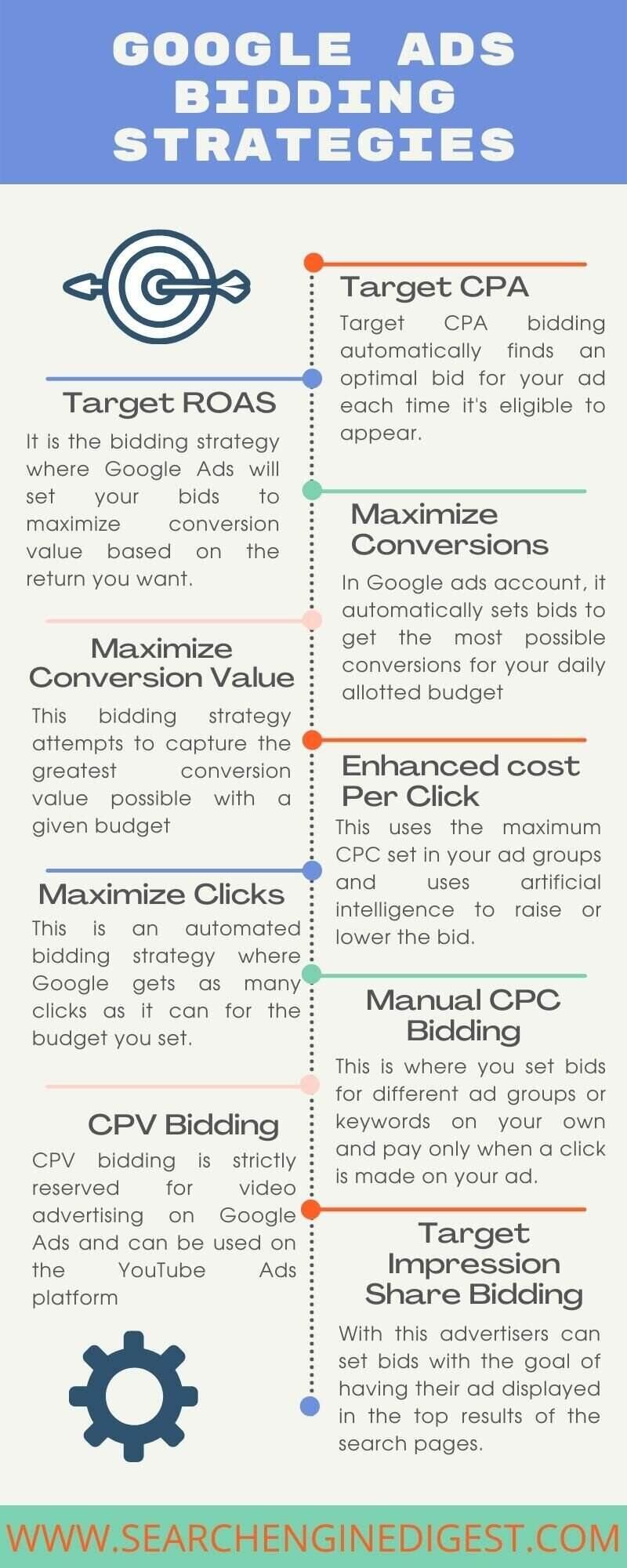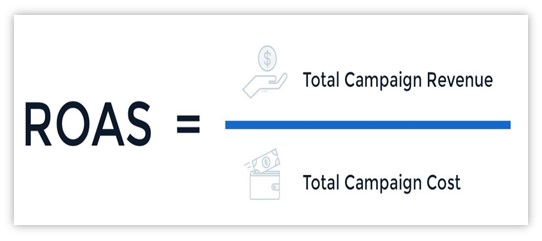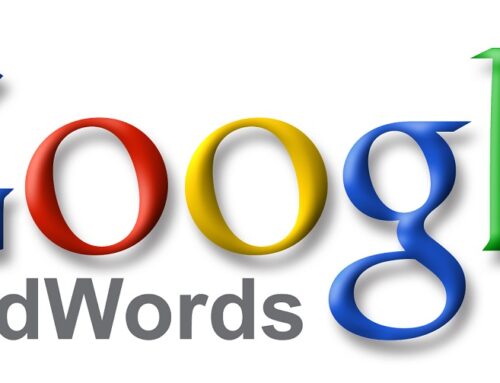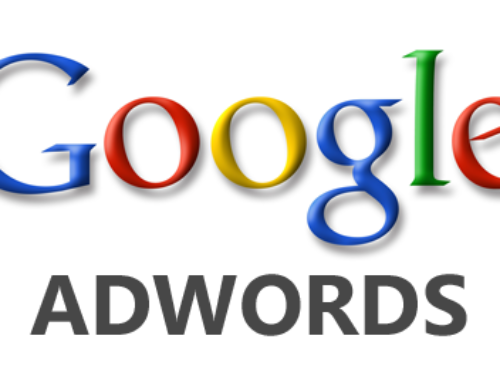Doing anything for the first time can be an intimidating process. So, getting started with Google Ads may seem to be a difficult task if you have never done it before. Google prefers high-quality ads, but getting the top ad rank and ad position requires an intelligent investment plan and smart bidding strategies.
A bidding strategy is a way in which Google will use your advertising budget, depending on your campaign goals. Before you start working on your Google Ads bidding strategy, think about your business goals like increasing brand awareness, improving lead generation, increasing conversion rates, etc.
Regardless of what your goals are, you need to have a good bid strategy to make the best use of your PPC budget. Ultimately, that will help you generate a better return on advertising spend (ROAS), and get desired results. In the Google Ads auctions, your Ad Rank is determined by your bid amount and your Quality Score. Ads that have a low-Quality Score will invariably cost you more, so you need to follow proper bid management as you’ll need to make higher bids to get your ads in front of viewers.
Goals of a PPC campaign
Online businesses bid on specific keywords or keyword groups in an attempt to secure ad space for important terms relative to their business. You need to follow a proper bid PPC bid management plan to get your business noticed on today’s crowded Internet. And once you start bidding appropriately and consistently, you’ll find that it’s much less confusing than you might have originally assumed.
Applying PPC bid management can help you achieve marketing goals, other than just profits. When strategizing for campaigns, you need to identify your company objectives, and how they relate to PPC. One company may just be looking for ways to get more views on their landing page while others may be focusing on generating revenue. Let’s now see few benefits of the bid strategy.
- Conversions – To drive conversions, you want visitors to take a specific action on your PPC ads like making a purchase, availing of your services, completing a form, etc. As PPC is pay-per-click advertising, campaign managers need to focus on high-converting keywords to bid on, which works well in the bidding strategy and helps in generating a huge number of conversions. You can only determine your ROAS if you measure how many users convert for your ad spend.
- Clicks – If you want to drive traffic to your landing page, your bidding strategy should be to generate clicks from your PPC ads. To plan the best bidding strategy, you can perform a PPC audit to figure out which ads drive more clicks like search ads, display ads, etc.

- Increasing traffic – New companies are often looking to build brand awareness and to get their company’s face in the public eye. The great part about using PPC for this goal is that everything is highly measurable. You can set KPIs and measure clicks. Of course, you can take it one step further by measuring the user paths after they reach the landing page, and then make adjustments using that data. If your PPC campaign isn’t focused on sales then to keep costs low you should use broader, less expensive keywords.

- Build brand awareness – Brand awareness is the extent to which the customer can correctly identify your brand based on the products or services, social influence, etc. If you want to increase brand awareness, your campaign goal would be to maximize the impressions and visibility of ads. The more satisfied the customers are with your brand, the higher the chances that they become partial promoters of your brand which helps in peer-to-peer marketing.

- Generate revenue – Generating revenue is the ultimate goal of any paid advertising campaign. Since for every click, advertisers have to pay money to search engines so PPC advertisers need to formulate smart bidding strategies and follow proper bid adjustment regularly.

Types of bidding
Choosing the right bidding strategy can elevate your PPC campaigns. When you align your PPC goals with the perfect bidding strategy, you soon experience a greater number of auction wins and overall stronger conversions. However, it isn’t just a matter of selecting the right bidding strategy and pressing go. Since the advertisers have to pay money for every click there are many myths going around PPC advertising which is not exactly true. Although with proper bid management you can get to improve your conversion rate, increase leads, click-through rate, quality score, etc. Let’s discuss 2 types of bidding:
- Manual bidding – As the name suggests, manual bidding is when an advertiser themself manages their keyword bids in the Google Ads account. In this bidding method, advertisers make decisions and take action on their PPC account without any AI assistance or smart solutions.
Usually, advertisers rely on experience, intuition, and analysis of past keyword performance report to guide their Google Ads bidding strategies. You can implement smart bidding strategies if you have a limited budget, a small amount of consumer data, want more control over your ads, and have a lot of time controlling your campaign. This process requires a high degree of patience, time, and PPC knowledge to drive a good return on investment (ROI). Benefits of manual bidding are:
-
- Control– In the manual Google Ads bidding strategies, as you are doing campaign analysis, adjusting bid amounts, and conducting keyword research yourself, so you should have the control to win bids on the specific terms and phrases.
- No delay in changes – Automated bidding can take a little time to implement, but in manual bidding, as you are doing bid adjustment yourself, you can make changes in Google Ads bidding strategies whenever you wish to.
- Quick reactions – You run a quick ads auctions Insights report and deduce that some new competitors have driven the cost-per-click (CPC) rate up. In response, you change your bids on the low-performing keywords and then again decide budget for your campaign.
- Automated bidding – Automated bidding, also known as smart bidding, is an AI-led keyword bidding strategy that uses algorithms to optimize bids according to your PPC campaign goals. Smart bidding is best if you have large accounts, a lot of historical data, want to reduce the time you spend on campaign monitoring and have specific goals.
-
- Versatile segmentation – It enables you to create custom subsections of your broader target audience, based on their interests and behaviors. You can bid for keywords for each segment and create special ad campaigns for them.
- Accurate prediction models – Advanced artificial intelligence helps you make accurate projections about your campaigns and provides a solid foundation for smart decision-making.
- Contextual signals – With Smart bidding strategies, you get to know identifiable attributes about online users and this can help scheduling your ads in Google Ads.
Such examples of these signals include user behavior, demographics, ad characteristics, onsite behavior, etc.
If you don’t have the time to manage your Google Ads campaigns but are interested in using PPC ads to further your business’s goals, you can avail PPC services from a digital marketing agency. The PPC specialists can assist you with smart bidding strategies to help you achieve your desired results.
Google Ads bidding strategies

Bid management is a skill to offer comprehensive and competitive bidding using various aspects like analyzing ad cost, understanding the choice of the customer, and do real-time bidding to maximize campaign performance.
Choosing the right Google Ads bidding type and implementing a solid strategy for bid adjustment is critical to driving your ad costs down. If you don’t follow a proper PPC bid management plan, you can end up wasting your entire budget for just a few clicks. But with the right moves, you can take your campaign performance to the new level. Let’s see the different types of Google Ads bidding strategies, and how to use them to your advantage.
- Target CPA – Target CPA is a Google Ads bidding strategy you can use if you want to optimize conversions. As driving conversions is the primary goal in paid advertising, selecting target CPA bidding will focus on trying to convert users at a specific acquisition cost.
According to Google, “Using historical information about your campaign and evaluating the contextual signals present at auction-time, target CPA bidding automatically finds an optimal bid for your ad each time it’s eligible to appear.
In the Google Ads account, your bids will be set automatically on each campaign based on your CPA. While some conversions may cost more, others may cost even less and align with your acquisition costs.
Since Google Ads is paid advertising, target CPA bidding can be complicated if you don’t know what your acquisition costs are. Your cost per acquisition is simply the amount of money you can afford to spend on one customer to make a purchase. When selecting this bidding method, you can enter your target CPA, and reach your target goals.
- Target ROAS – ROAS stands for ‘return on ad spend.’ Essentially, it is how much value you receive through conversions for every dollar spent on PPC ads. Target Return on Ad Spend is a bidding strategy that requires some calculation and maybe an awful subject that most marketers run from.
Target ROAS is the bidding strategy where Google Ads will set your bids to maximize conversion value based on the return you want from your ad spend. The formula to calculate ROAS is:

For e.g. – If you spend $20 on PPC ads and return $50 in revenue, then your ROAS would be 250%.
As a bidding strategy, Target ROAS focuses on maximizing the value of each conversion, instead of the number of conversions i.e., quality over quantity.
- Maximize conversions – Maximize conversions strategy on Google Ads account automatically sets bids to get the most possible conversions for your daily allotted budget. Using the maximum daily budget that you set, Google will automatically run bidding for you to get the most conversions for your money. The max conversions strategy is one of many automated bidding strategies offered in Google Ads today.
Depending on your return on ad spend (ROAS) or cost per acquisition (CPA) goals, maximize conversions can be a great strategy to obtain the highest number of conversions while efficiently spending your daily budget to its full. For example, if your daily budget is $50, Google will spend it wisely to find the most conversions. If a single conversion costs $50, Google won’t bid on it for you. Before selecting this bidding method, be sure to check that you set your daily budget amount at a reasonable level that you’re willing to spend.
- Maximize conversion value – The maximize conversion value was launched in 2019 by Google. It is the newest Google bidding strategy being used by advertisers and works essentially like target ROAS. The difference is that you don’t have to specify a target ROI, you just let the algorithm try to maximize all your ad spend to the best of its ability.
Maximize Conversion Value bidding attempts to capture the greatest conversion value possible with a given budget. The algorithm uses historical campaign data and contextual signals including device, location, time of day, demographics, query, and more to find the optimal CPC bid for each auction. If you are already tracking PPC campaign revenue, your focus should also be on lead generation, CPA, etc. This bid strategy can still be tested by setting particular values for lead conversions.
- Enhanced cost per click (ECPC) – In a few words, it’s a mix of manual and smart bidding. Enhanced CPC uses the maximum cost per click that you’ve set in your ad groups or keywords, and uses artificial intelligence to increase or decrease the bid. ECPC works by automatically adjusting your manual bids for clicks that seem more or less likely to lead to a sale or conversion on your landing page. You set the basic CPC for your ad groups and keywords, but the algorithm gets to optimize them.
Google has the right to increase or decrease your bid amount based on the likelihood of driving the sale. Bids will try to be averaged out at your max cost per click settings. If a search is too competitive and CPCs are outrageously high, Google can lower your bid to cost less due to decreased chances of converting. If it’s an easy steal by increasing bids, Google will make the call. This type of bidding is available on both the search network and display networks.

- Maximize clicks – Maximize Clicks is an automated bidding strategy where Google gets as many clicks as it can for the budget you set. Google Ads will attempt to drive the most clicks possible with your budget. It doesn’t consider the quality or relevance of the traffic. Maximize clicks is the best option if you have a very limited budget or limited search volume for the keywords in your campaign. Doing keyword research may work best for the campaign at the beginning of the Google Ads journey. This would help in deciding how much you should pay for a click, focus on high-traffic keywords, improve search volume, and the type of search queries made by the user.
- Manual CPC bidding – Manual CPC Bidding gives you more control over your bidding strategy. But more control means more time spent monitoring costs and bid adjustment on your own.
If you aren’t well versed with Google Ads yet, this bidding strategy may not work best for you.
Manual CPC is where you set bids for different ad groups or keywords on your own. If specific search terms are more profitable than others, you can quickly adjust budgets to add or remove money from other campaigns.
After setting the max CPC, check how many clicks your ads have accumulated and whether those clicks lead to business results on your landing page. Don’t forget that internet traffic is always changing, so it’s important to re-evaluate your CPC bids on a regular basis.

- CPV bidding – CPV stands for Cost per view bidding. CPV bidding is strictly reserved for video advertising on Google Ads and can be used on the YouTube Ads platform. Using CPV bidding, you pay for video views. Interactions on YouTube could be like call-to-actions clicks, overlay clicks, companion barriers, etc. In this case, with CPV bidding, a view is counted when someone watches 30 seconds of your ad, less than 30 seconds, or whenever they engage with your ad.
For CPV bidding, you start by entering the highest bid you’re willing to pay for a view or interaction. This is known as your maximum cost-per-view. For instance, if you set your max CPV to $0.25, you would pay a maximum of 25 cents when a user watches your ad or engages with your call to action. To set your CPV bidding focus on first maxing out your quality scores and ad rank, drive down the cost-per-view ads, allowing you to pay less for better results.
- Target impression share bidding – Target impression share is a new bidding strategy released in 2018 by Google Ads. This smart bidding strategy is focused on brand awareness and helping you reach as many leads as possible.
Using target impression share, advertisers can set bids with the goal of having their ad displayed in the top results of the search engine result pages. Target impression share is available either as a standard strategy in a single campaign or as a portfolio strategy across multiple campaigns.
When utilizing target impression share, Google advises not to set the max CPC bid limit too low. Otherwise, it may restrict the bids and prevent the campaign from reaching its goal.
Wrap up
Now you must have got the idea of how to make bidding strategies for your PPC ads campaign. These bidding strategies would help you to optimize conversion rate, improve the position and rank of your ads, scheduling ads in your Google Ads account, etc. When launching a new PPC campaign on Google Ads, you need to have smart bidding strategies that increases brand awareness, increases traffic and ultimately generate revenue for your business. These bidding strategies would help you aggregate, automate and optimize your ad campaign to generate huge revenue for your business.
References
-
306, 2024Understanding Google’s preference for crawling high-quality content
Crawling websites is [...]
-
2905, 2024All you should know about third-party cookies by Google
Cookies have revolutionized [...]
-
2405, 2024Helpful content update by Google to enhance website ranking
Google launched a [...]





Leave A Comment